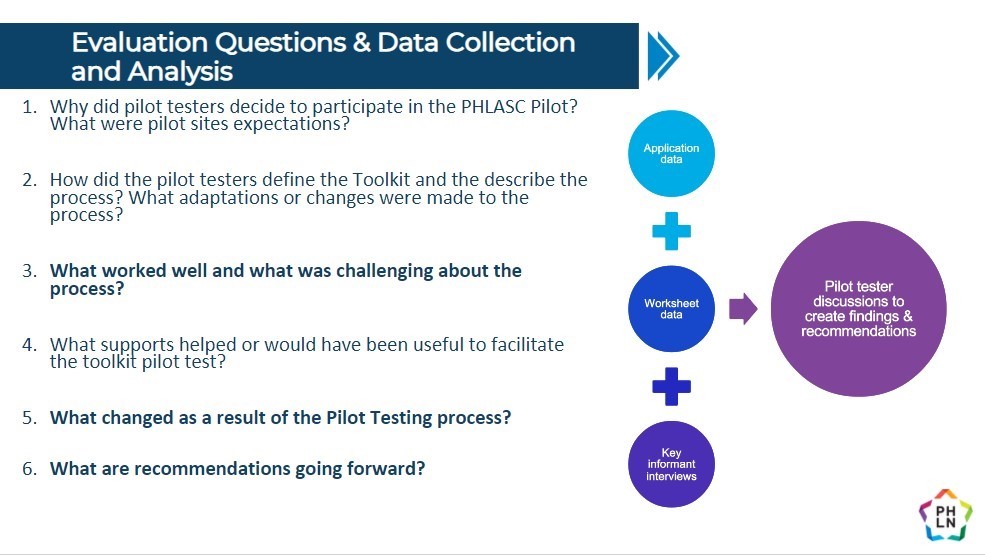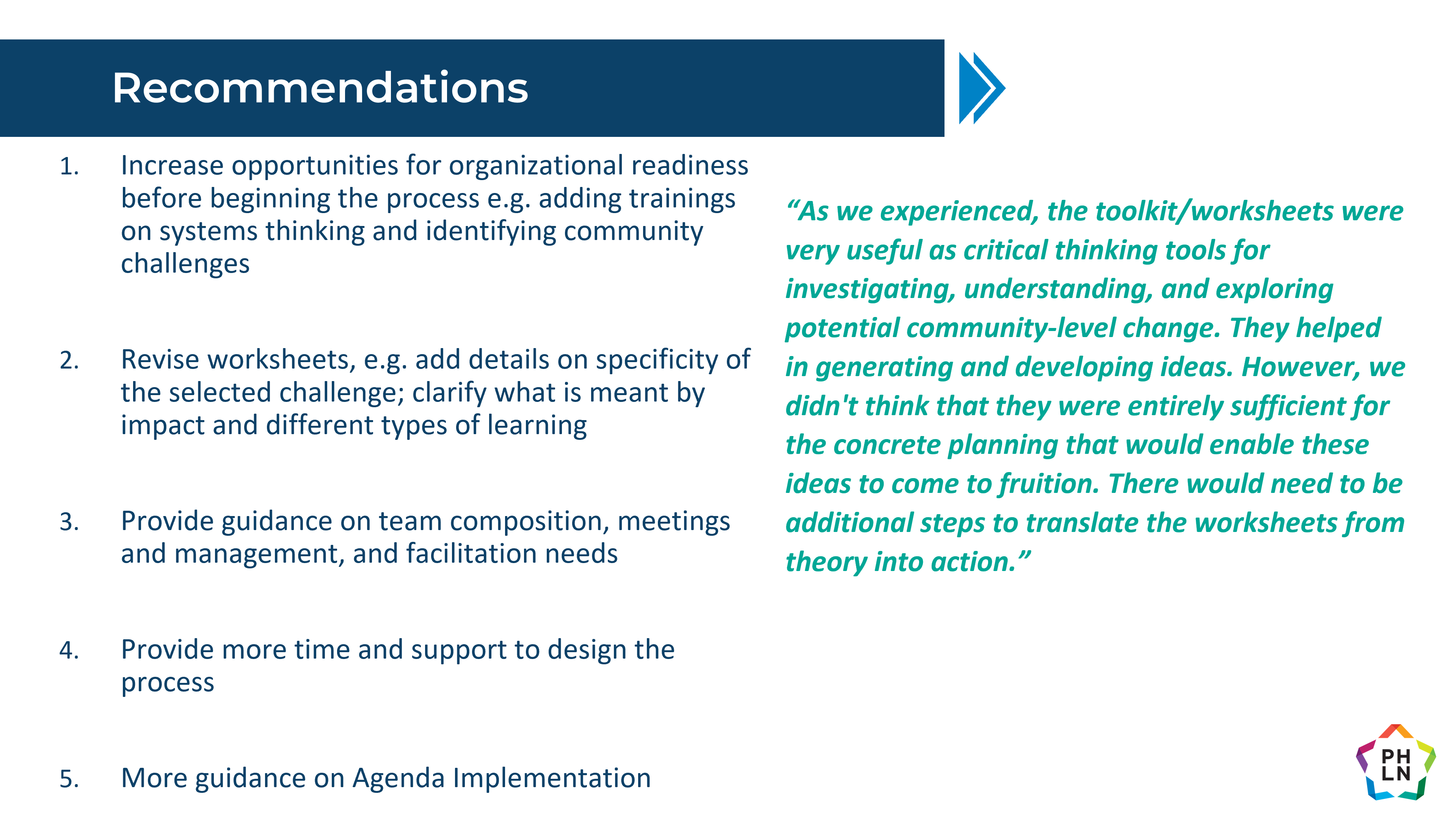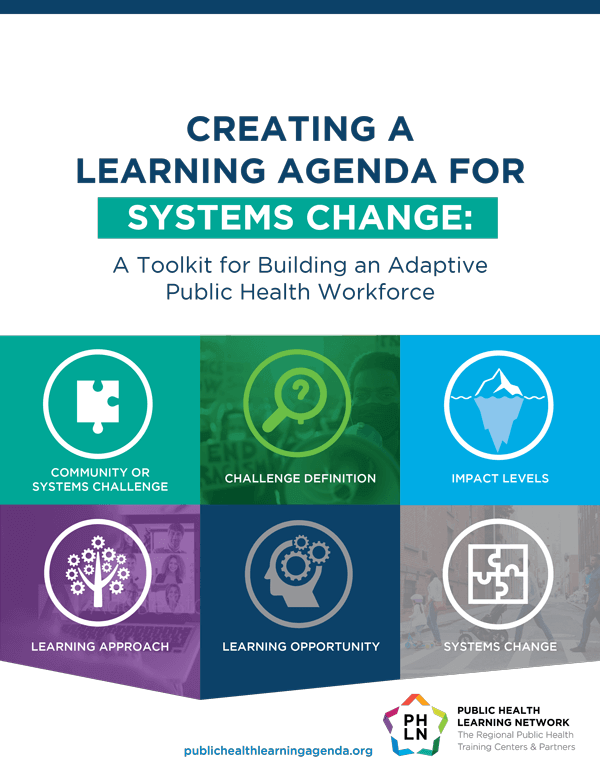The Public Health Learning Agenda for Systems Change (PHLASC) Design Team thanks and congratulates the 25 public health teams from across the country who completed the summer pilot of the PHLASC. These brave teams, using guidance from the Design Team, website-based worksheets, and optional technical assistance sessions, each completed one round of the PHLASC. In essence, the teams had to meet, choose a community or systems challenge, define that challenge by probing into the contributing factors, and then work on designing learning to work changing one of those complex/adaptive sub-factors causes through learning design. By definition, this meant the teams had to spend time together asking systems-thinking like questions about what was causing the community health challenge in their scope of influence, which could take some bravery, and feel for a bit like a walk in the wilderness.
Data Collected from the Learning Agenda Pilot
To recap: the organizations piloting the agenda were volunteering to help the Design Team move from a Public Health Learning Agenda 1.0 (a manuscript with an appendix of visual tools and a discussion guide), to give feedback for an improved Public Health Learning Agenda 2.0, which is to be further defined from the data collected from the Pilot Testers and a national panel of advisors. The pilot teams joined the “Shareback” meeting on November 1, 2021 to hear the summary of their collective experience.
Data collected from the pilot testers came from three sources: application data, worksheet data, key informant interviews by an evaluator, and pilot tester discussion. The questions considered in evaluation are summarized in Illustration A – ultimately informing recommendations for next steps.

Informing Next Steps
The PHLASC Design Team is so grateful for the mountains of data and feedback provided to us from the pilot testers. With the data in hand, the team is preparing a manuscript about the pilot for publication, assembling a national practice and academic steering commitee, and creating a structured process, to guide the recommendations for the development of the Public Health Learning Agenda for Systems Change Toolkit 2.0.
High level recommendations are listed in illustration B. For example, some teams with more background in systems thinking had an easier time, suggesting the need for increased opportunities for organizational readiness. Pilot testers and those who have attended Learning Agenda conference workshops have used “Putting It All Together Worksheet”, and there are suggestions for improvement. (These are not available without attending a workshop). Our data have other excellent recommendations for improving use of the PHLASC.

Stay Tuned
The Design Team will update the website and post when there are new publications, conference presentations or opportunities for engagement.
Questions? Contact Cassidy Walter, Project Coordinator (Cassidy.Walter@cuanschutz.edu).

